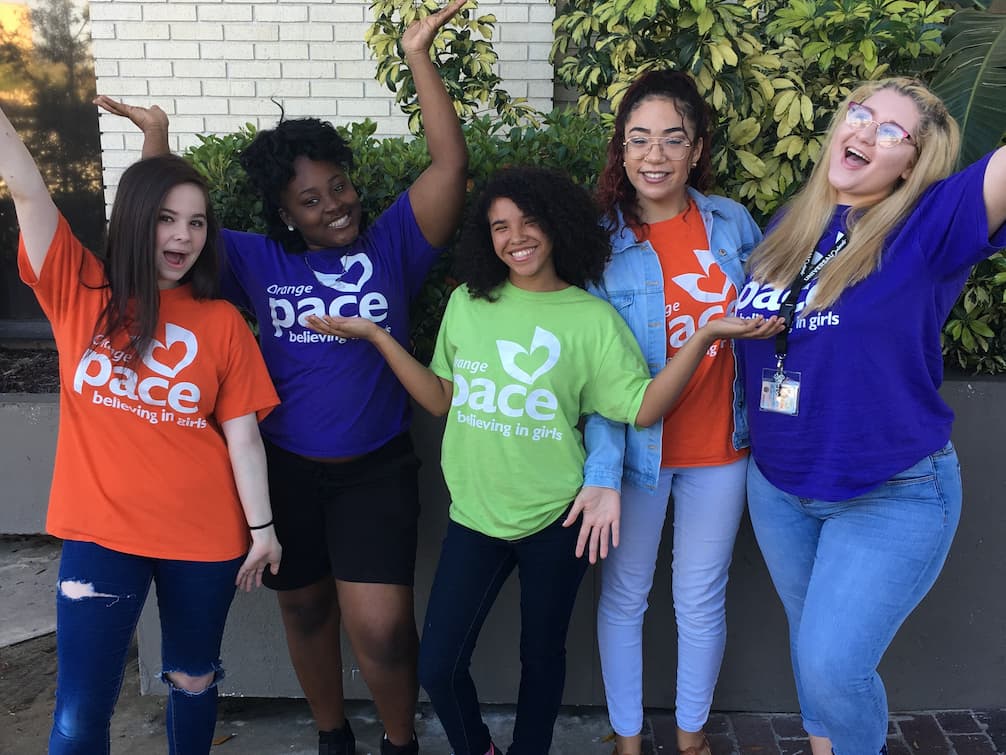
Orange County’s Domestic Violence Commission Addresses Teen Dating Violence
When Tina first came to Pace Center for Girls Orange in middle school, she was experiencing behavioral challenges and shared that not only had she witnessed domestic violence, but she “may” have been in a violent relationship herself. Her counselor listened, and through the shared resources provided by Pace and the Orange County Domestic Violence Commission, Tina finally realized she was not in a healthy situation.
During her junior year, Tina returned to Pace and still had not let go of the relationship. Over time, Pace became a safe space for her, she got out of the relationship and graduated on time. Today, she is manager at one of the largest local restaurants in Orange County and on her way to getting her associates degree.
“Tina began to find her self-worth and break free from the violent trajectory her family followed,” explained Rosene Johnson, executive director, Pace Center for Girls Orange “This is a life we had the ability to change. It wasn’t easy, but she did the work. When she starts her own family and has kids, she will spot any potential problem and not allow the cycle to continue.”
The Orange County Domestic Violence Commission, which Mayor Jerry L. Demings reconvened in 2019 in response to higher of rates of incidents of domestic violence in the County, is working with Pace Center for Girls Orange to provide resources and advocacy to youth who have experienced teen dating violence, which affects millions of teens in the United States every year.
Teen dating violence occurs between two people in a close relationship and can include physical and sexual violence, psychological abuse and stalking. According to the Centers for Disease Control and Prevention, nearly 1 in 11 female and 1 in 15 male high school students report having experienced physical dating violence in the last year; and 1 in 9 female and 1 in 36 male high school students report having experienced sexual dating violence in the last year.
“It has always been an issue, but what has changed are the ways in which young people are reaching out to gain support, which is why we’re hearing more about it,” explained Johnson.
Pace works with Domestic Violence Commission stakeholders to provide kids with the mental health services they need to process what they see in their homes and realize it is not healthy. Consequently, when they are in a relationship, they know violence is not acceptable.
“Until a teen feels safe, there can’t be trust, and they can’t become their own advocate,” said Johnson. “When they get to Pace, they meet with a counselor on a consistent basis in a smaller environment, which allows them to let down their guards and feel safe.
“For boys, it’s the opposite side of the same coin. Girls tell us the boys have witnessed or seen domestic violence, and when we dig deeper, the parent shares they’ve also witnessed it, so it’s cyclical on both ends, which is why we have to spend so much time educating and counseling to educate this next generation and end these cycles of violence and trauma.”
Two-way communication between Pace and the Domestic Violence Commission is critical because they are not simply sharing data and statistics, but also resources and information on how they can in turn share these resources throughout the County and create more awareness.
“We need to keep this issue at the forefront of people’s minds,” said Johnson. “Just because we see smiles and fun photos on social media, we can miss the fact a young person is hurting. So, whether you’re a parent, teacher or judge, if you’re connected to youth, take the time to ask if they’re okay. Be that trusted person. And if not, help them get the help they need.”
For more, go to Domestic Violence Commission, and if you know a young lady who needs support or resources, go to Pace Center for Girls Orange.
